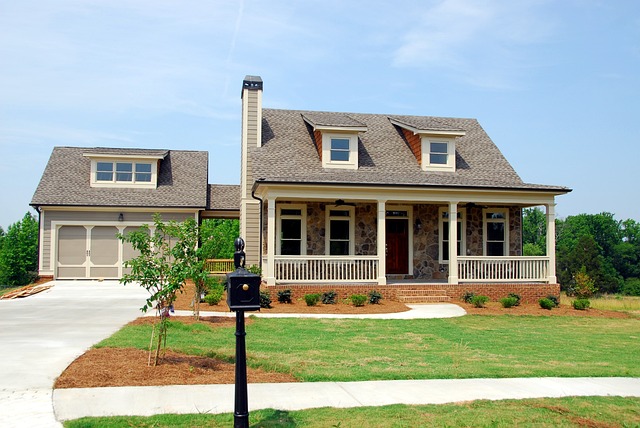Vinyl siding is an excellent option for homeowners looking for a low-maintenance, durable exterior finish. However, it’s not indestructible, and holes can occasionally occur. At Roof Right, a residential roofing company in Maryland, we often get inquiries about drip edge flashings and their role in protecting their home. Let’s take a look at what can cause a hole on a vinyl siding and what you can do to prevent them.
Impact Damage
One of the most common causes of holes in vinyl siding is impact damage. This can occur when something hits the siding with enough force to create a hole. For example, a baseball or a rock thrown by a lawnmower can cause a hole in your siding. Additionally, tree branches or debris blown by strong winds can also cause damage.
To prevent impact damage, it’s important to keep your yard free of debris and to trim trees regularly. It’s also a good idea to avoid playing sports near your home or using lawnmowers close to the house.
Holes from Corrosion
Another cause of holes in vinyl siding is corrosion. This can occur when metal elements come into contact with the vinyl siding. For example, if you have metal gutters or downspouts that are in contact with the siding, over time, the metal can corrode and create small holes in the vinyl.
To prevent corrosion, it’s important to keep metal elements away from the vinyl siding. If you must have metal elements near the siding, consider installing a barrier between the two materials to prevent contact.
Holes from Heat
Vinyl siding is designed to withstand a wide range of temperatures, but extreme heat can cause it to warp or even melt, creating small holes. This can occur if a grill or another heat source is placed too close to the siding.
To prevent heat-related damage, be mindful of the placement of heat sources near your home. Keep grills and other heat sources at a safe distance from the siding to prevent damage.
Holes from Insects
Believe it or not, insects can also cause holes in vinyl siding. Certain types of insects, such as carpenter ants, can burrow into the siding and create holes. Additionally, woodpeckers and other birds can peck at the siding, causing damage.
To prevent insect damage, it’s important to keep your home free of pests. Seal up any gaps or holes in your home’s exterior, and consider treating your property for pests if necessary.
Holes from Poor Installation
Finally, holes in vinyl siding can sometimes be caused by poor installation. If the siding isn’t installed correctly, it can become loose or shift over time, creating gaps and holes.
To prevent installation-related damage, it’s important to work with a qualified professional when installing vinyl siding. A reputable contractor will ensure that the siding is properly installed, reducing the likelihood of future damage.
Fixing Holes in Vinyl Siding
If you do end up with a hole in your vinyl siding, don’t panic. Small holes can often be repaired without having to replace the entire section of siding. Here’s how to fix a small hole in vinyl siding:
1. Clean the area around the hole with soap and water, and let it dry completely.
2. Cut a small piece of vinyl siding to fit over the hole. This can be done using a utility knife and a straight edge.
3. Apply a small amount of adhesive caulk to the back of the replacement piece of siding.
4. Carefully slide the replacement piece of siding into place, making sure it’s flush with the surrounding siding.
5. Hold the replacement piece of siding in place for a few minutes to allow the adhesive caulk to set.
Preventing Holes in Vinyl Siding
While repairing small holes in vinyl siding is relatively easy, prevention is always better than cure. Here are a few tips to help prevent holes in your vinyl siding:
1. Keep your yard free of debris.
2. Trim trees and bushes regularly to prevent branches from hitting the siding during storms.
3. Be mindful of the placement of heat sources near your home, and keep them at a safe distance from the siding.
4. Keep metal elements away from the vinyl siding. If you must have metal elements near the siding, consider installing a barrier between the two materials to prevent contact.
5. Seal up any gaps or holes in your home’s exterior, and consider treating your property for pests if necessary.
By following these tips, you can help keep your vinyl siding in excellent condition and prevent holes from occurring. And if you do end up with a hole, remember that it’s often possible to repair it without having to replace the entire section of siding.
Ready To Fix The Hole On Your Vinyl Siding In Maryland?
At Roof Right, an exterior home remodeling company in Maryland, we understand the fear many homeowners may have when selecting an outdoor contractor and understand that trust is something that has to be earned. We work hard to earn the confidence of each and every customer every day. Our company is dedicated to homeowners and their service needs, and we offer one of the best warranties in the industry.
Call us today at 410-374-5923 or email us at info@roofright.com

